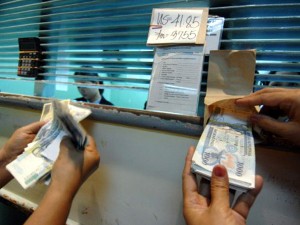To facilitate easier entry of imports as mandated under the rice tariffication law, the Bureau of Customs simplified processes and removed the advance duty previously slapped on importers.
Noting that the implementing rules and regulations (IRR) of Republic Act (RA) No. 11203 that took effect on March 5 were yet to be issued, Customs Commissioner Rey Leonardo B. Guerrero released interim guidelines on certain provisions of the new law.
Under the March 5 memorandum, Guerrero said all rice importation would be processed under regular customs cargo clearance procedures, unlike before when the National Food Authority (NFA) had to issue import permits prior to entry.
RA 11203 took away the NFA’s commercial functions and regulatory powers and retained only its emergency buffer stocking mandate.
Also, Guerrero said rice shipments would no longer be slapped the advance customs duty that was required before.
Under RA 11203, the following tariff rates now apply: 35 percent if rice was imported from Asean member-countries; 40 percent on rice within the 350,000 metric ton minimum access volume (MAV) and imported from World Trade Organization member-countries outside Asean, and 180 percent for rice above the MAV.
Guerrero said that pending the issuance of the IRR, district collectors might allow release of shipments “due to the perishable nature of rice importation and in order to protect the interest of the government,” citing provisions of the Customs Modernization and Tariff Act (CMTA) on provisional goods declaration.
The BOC, however, requires all rice importers to secure a sanitary and phytosanitary import clearance (SPSIC) from the Bureau of Plant Industry before importation.
“Rice importation should arrive prior to the expiration of the SPSIC from the BPI,” the BOC said.


